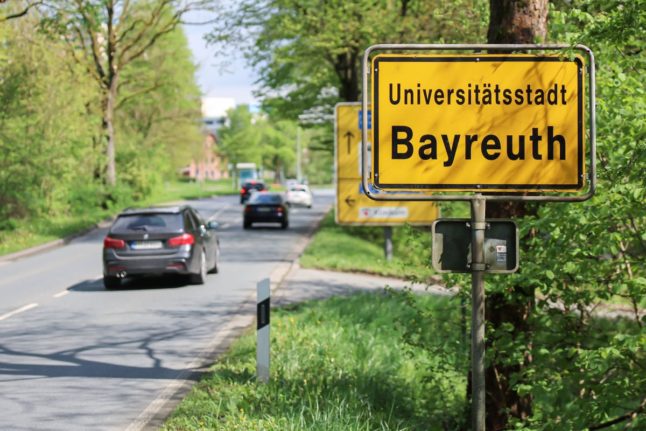Police have launched a large-scale investigation into the bizarre case of the bag of bones, discovered at the weekend on the top-floor balcony of an inner-city unit block, according to the Australian newspaper The Daily Telegraph.
A cleaning crew working at the Ashfield unit following the death of its 78-year-old occupant, Werner Sextro, discovered the bag concealed under a pile of soil and curtains.
Sextro told neighbours in April 2000 that his wife Elizabeth, who had lived in the apartment with him since the 1970s, had returned to their homeland of Germany to look after her sick sister.
The development has shocked female neighbours in the unit block, who attended Sextro’s funeral after he died of leukaemia in a Sydney nursing home in September.
A post-mortem yesterday revealed the bones were those of a human female and police say they are treating the death as “suspicious.” Homicide Squad Officers and Ashfield police are now trying to determine whether the remains are those of Mrs Sextro.
“We’ll be confirming identification through dental records and DNA,” said Inspector Scott Wall, of Ashfield police.
Only three mourners were at pensioner Werner Sextro’s funeral at Rozelle’s Mannings funeral home in September.
All were female neighbours from the neat brown-brick Ashfield unit block where the 78-year-old had lived for three decades. There were no relatives. But now those neighbours are reeling, because it appears Mr Sextro hid an incredible secret.
In April 2000 his wife Elizabeth disappeared. Sextro had told neighbours his wife had returned to their homeland of Germany to care for her sick sister.
Now, following a shock discovery of a bag of human bones at Sextro’s rented flat, police are investigating whether he murdered his wife and concealed her on his third-floor balcony for more than eight years.
The discovery was made by cleaning contractors who had gone into the apartment on Saturday to clean it up for new occupants. On the small balcony adjoining the second bedroom, they found a pile of soil with curtains draped over the top. Underneath this mound was a bag of bones. Police were called to the block and began scouring through the top-floor unit where, by neighbours’ accounts, Sextro rarely, if ever, received visitors.
One of Sextro’s neighbours, who did not wish to be named, said she had gone into the unit once, when Sextro was moved from Concord Hospital into Burwood’s Ainsley Aged Care Facility in September.
“No one went up there. The only reason we had a key was to get his clothes when he was moving into the nursing home. It was very tidy, very nice,” she said.
The neighbour said she believed the Sextros had occupied the unit for about 30 years but she only met them when she moved into the complex in August 1999. She said Mrs Sextro – whom she judged to be in her late 50s then – worked regularly at a coffee shop while Mr Sextro was a retired factory worker.
The German pair did not appear to have children but their relationship seemed stable and they remained active. “They were a very close couple. They went out all the time,” she said.
The neighbour said she had invited the Sextros to afternoon tea at her unit for her husband’s birthday on April 27, 2000. That was the first time she noticed Mrs Sextro was not around.
“He said: ‘She’s gone home to Germany to look after her sick sister’.”
She said she visited an unconscious Sextro in the nursing home the morning he died and she and two other female neighbours were the only mourners at his funeral.
Ainsley nursing home CEI Anne Davies said Sextro had no family listed as contacts, only a female neighbour. He had been moved in September 5 for palliative care and died on September 13. “He was dying when he came to us,” she said.
This story by Kara Lawrence was published with the kind permission of The Daily Telegraph.


 Please whitelist us to continue reading.
Please whitelist us to continue reading.